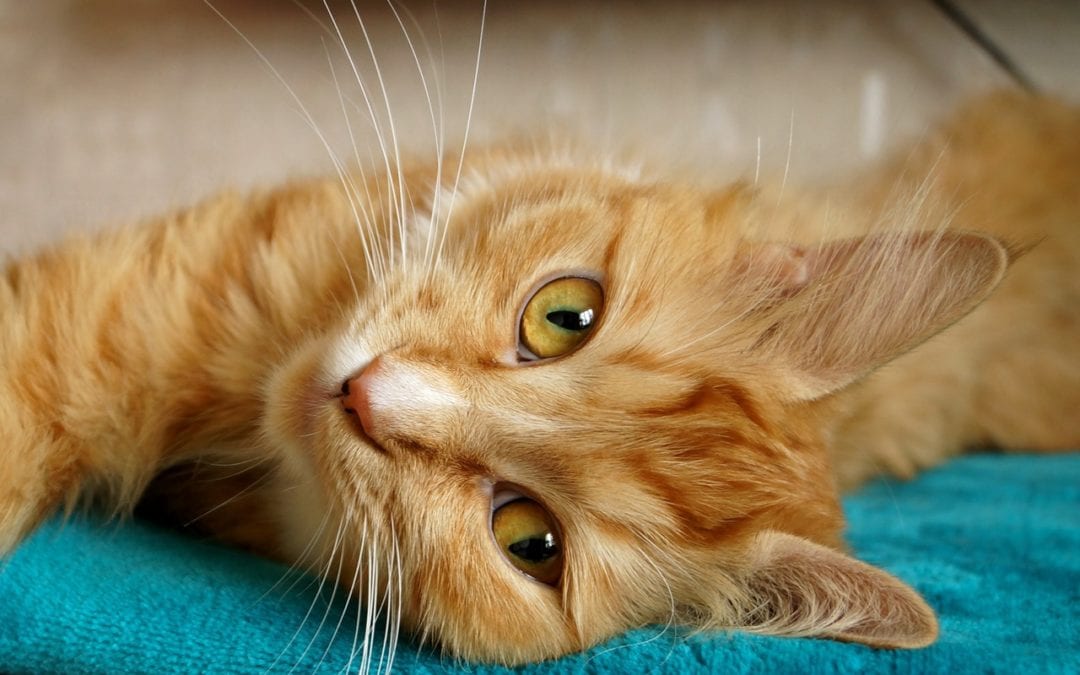Can you think of a time when you had a hectic and stressful time—maybe it was finals week in school or a massive project at work—and then when it was over, you got sick? The connection between our mental health and physical health is undeniable. If we are not doing well mentally or emotionally, we tend to be more prone to physical health issues. It’s the same way with our furry friends. Here are a few of the most common physical health issues brought on by emotional distress for pets.
Idiopathic cystitis
Although cats appear self-sufficient and strong, they can be fragile. Boredom from lack of enrichment and play, stress from household changes—cats greatly dislike change—or fear of a bullying housemate can disturb your cat enough to trigger bladder inflammation. Idiopathic cystitis, a painful condition that leads to inappropriate urination, occurs commonly in young cats. Adult cats who have timid personalities and tend to hide when guests visit, avoid socializing, and lack routine playtime are most prone to developing idiopathic cystitis.
Destructive behaviors
When we ask our pets to stay at home alone for eight or more hours every day and fail to provide ample enrichment, they become bored and stressed. The saying, “A tired dog is a happy dog,” applies especially to high-energy dogs. Dogs who are meant to work and perform a job quickly become bored with a couch-potato life, which leads them to look for an outlet for their pent-up energy. That outlet is usually some form of destructive behavior, such as excessive barking, chewing on furniture, scratching at doors or walls, or aggression issues caused by frustration.
Overeating
If you sat at a never-ending food buffet and had absolutely nothing else to occupy your time, you’d likely overeat. The same is true for pets, especially cats, who receive little or no environmental enrichment that physically and mentally stimulates them. Encourage your pet to work for her daily meals by using food puzzles, hiding small meal portions throughout your home, and asking her to perform tricks for her kibble. The additional exercise to work for her meals will not only stimulate your pet, but also help her maintain a healthy body weight and avoid falling into a vicious cycle of overeating, inactivity, and obesity.
Excessive grooming
Pets who are bored or stressed can develop bad habits, such as overgrooming. Dogs frequently lick their paws obsessively, while cats will pull out their fur, and may suffer from excessive hairballs. Overgrooming is often seen when the family is home and everyone is relaxing for the evening, which is when your pet begins her own routine to unwind.
Are you concerned that your pet may be exhibiting signs of boredom, stress, or anxiety? We’re here to help! Contact us.

